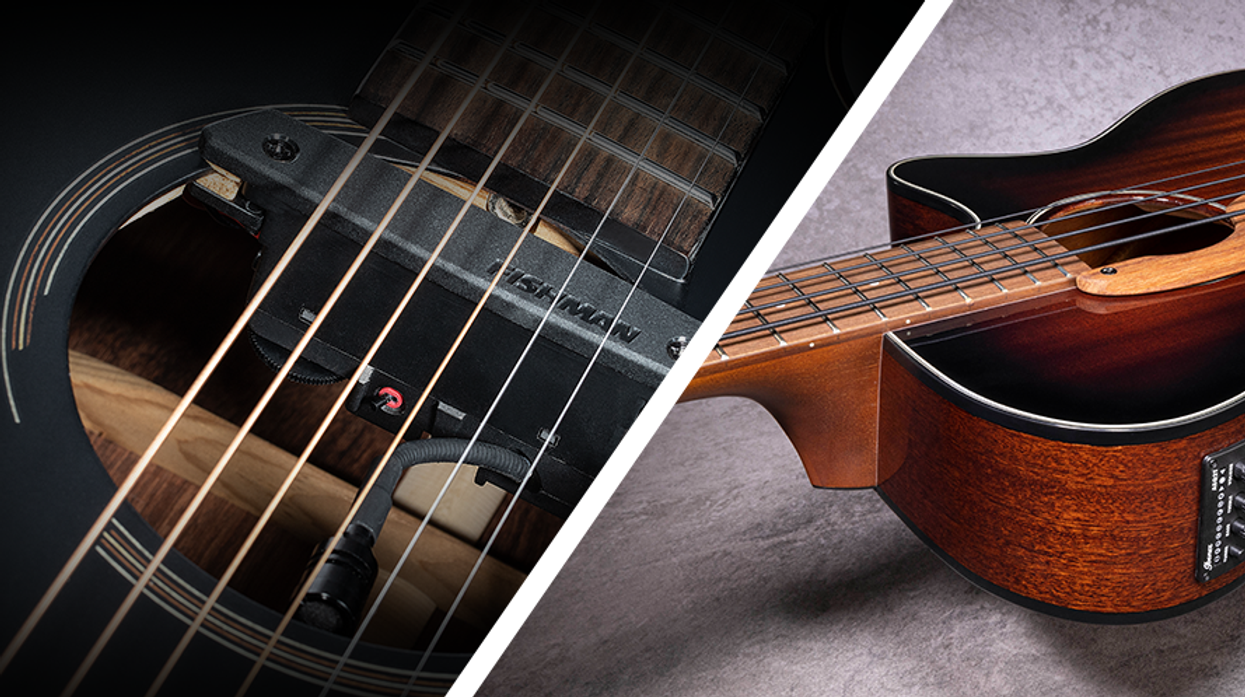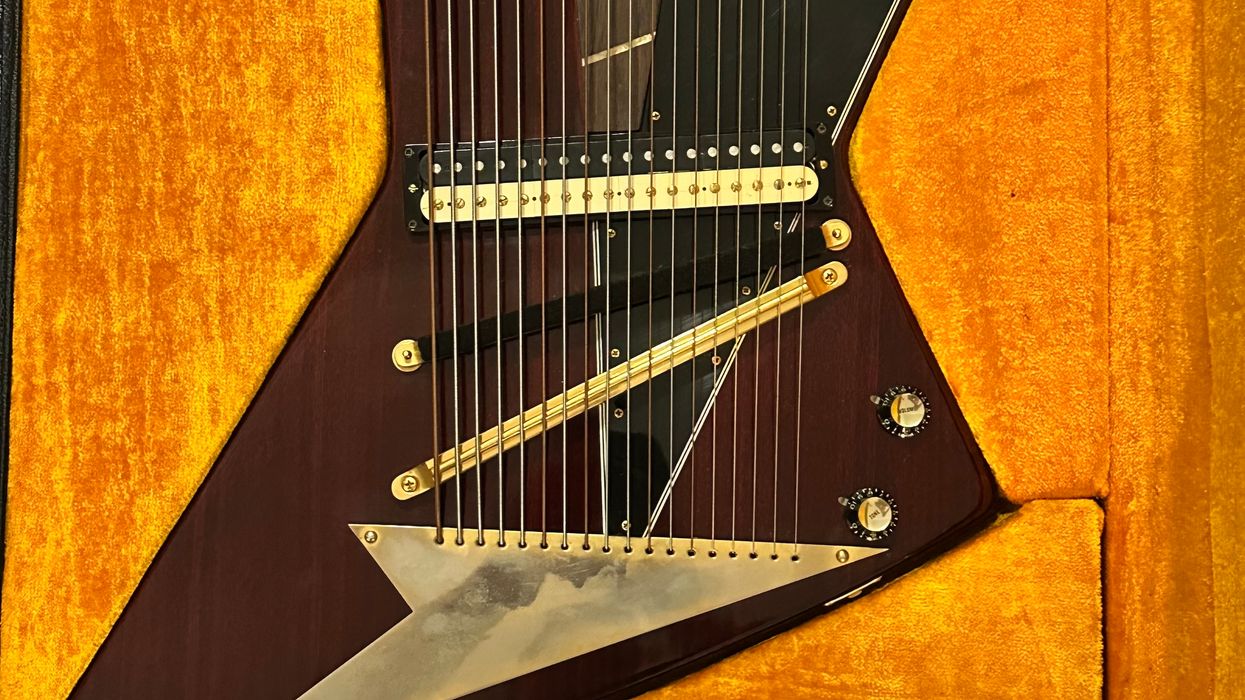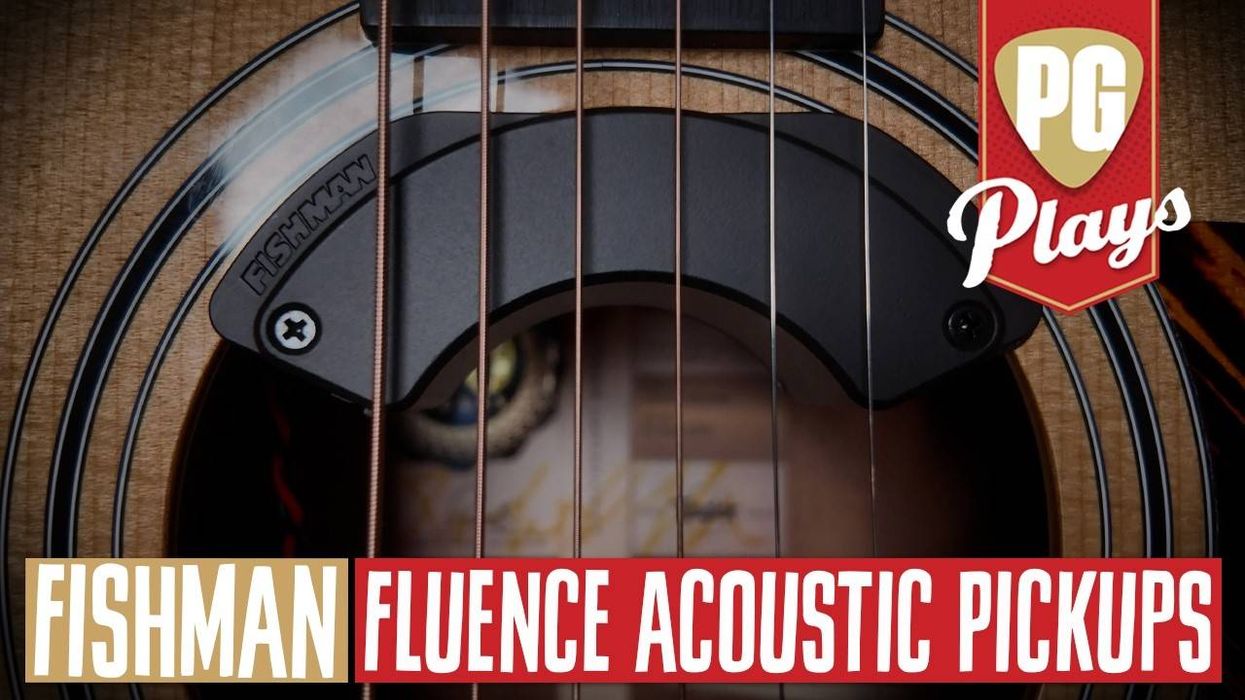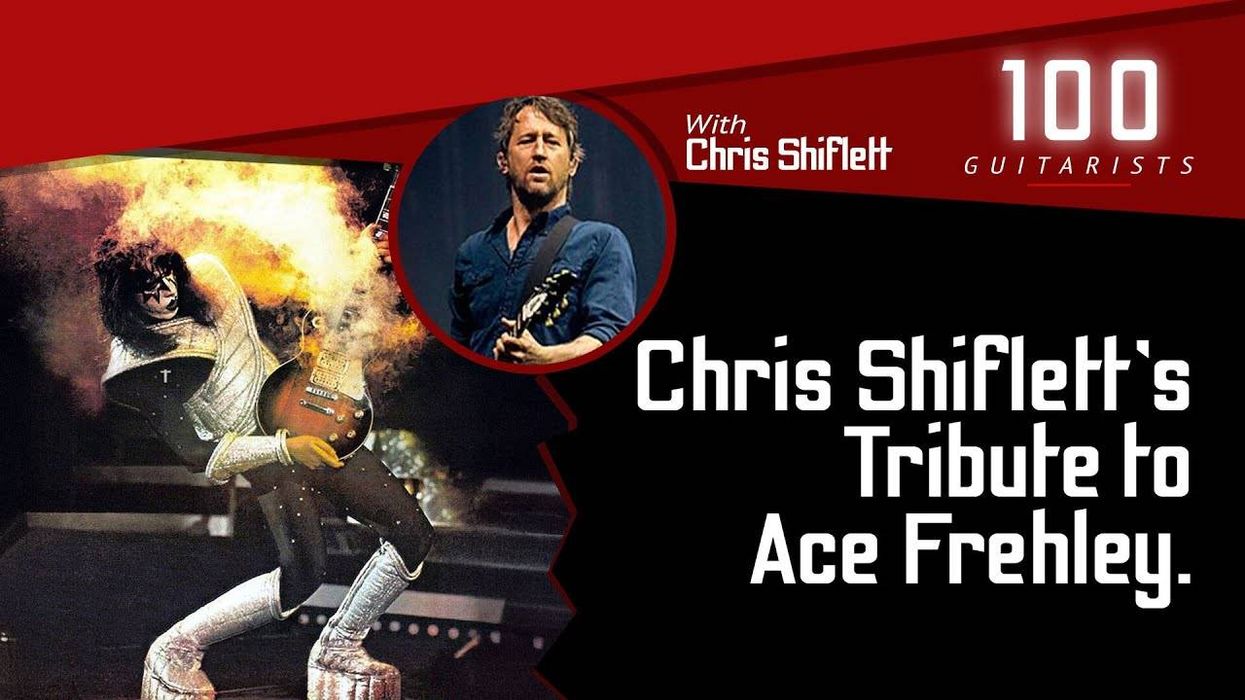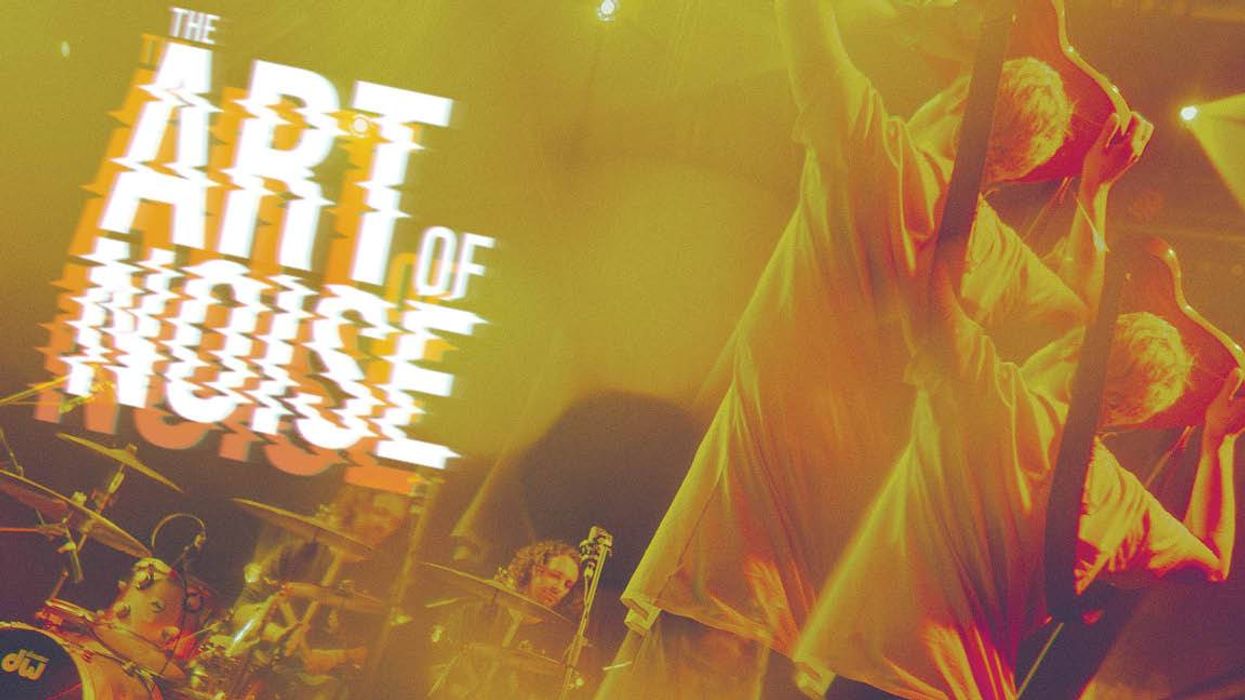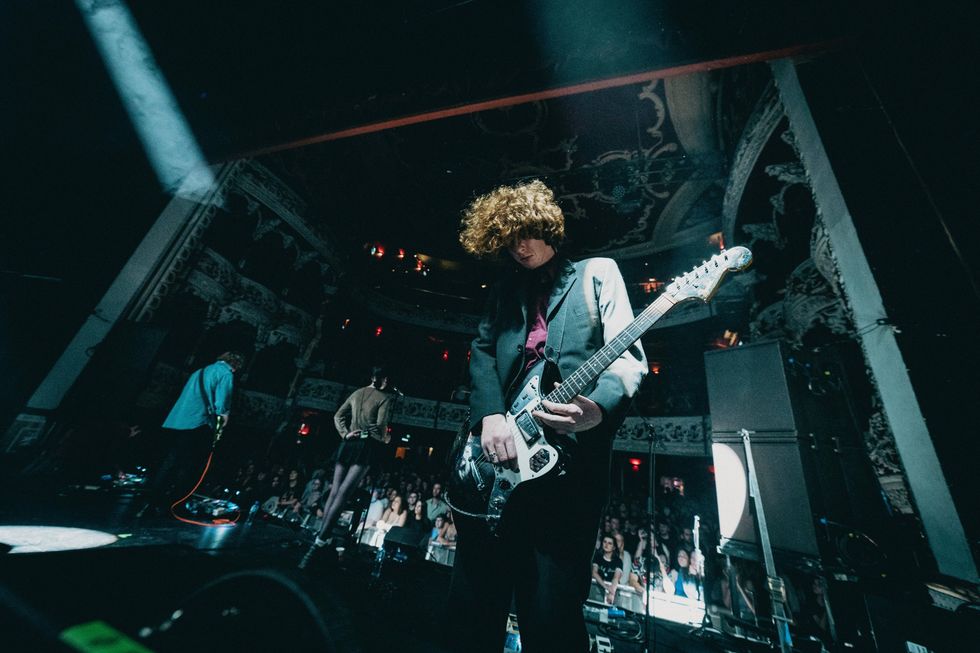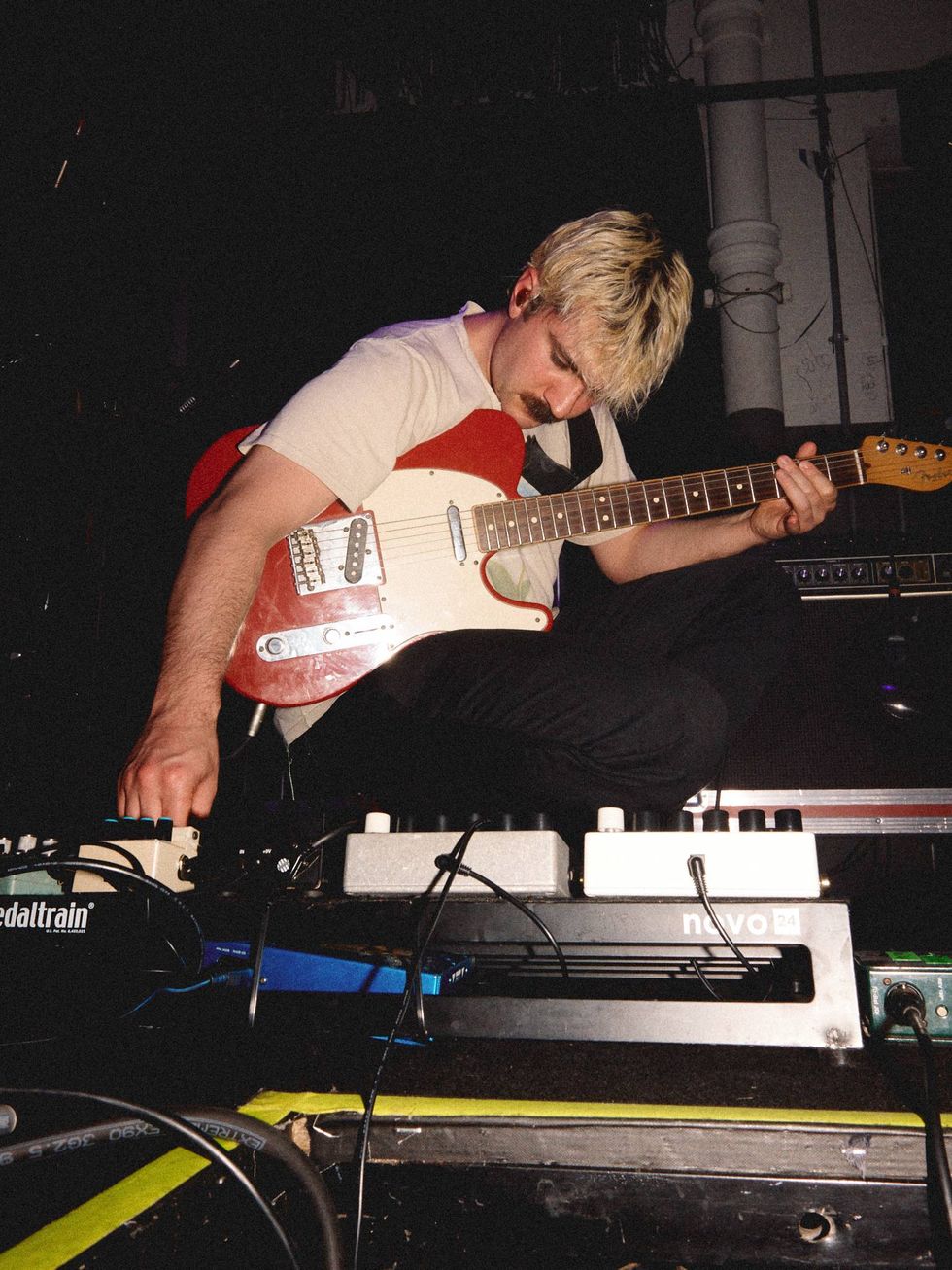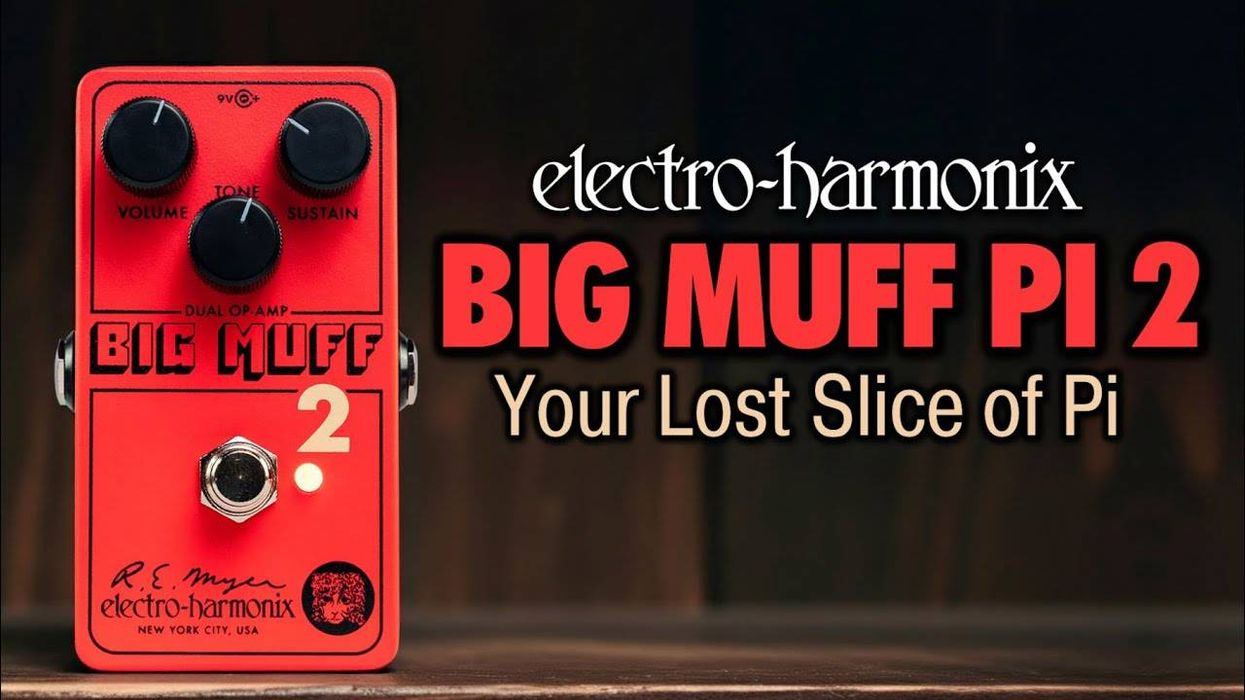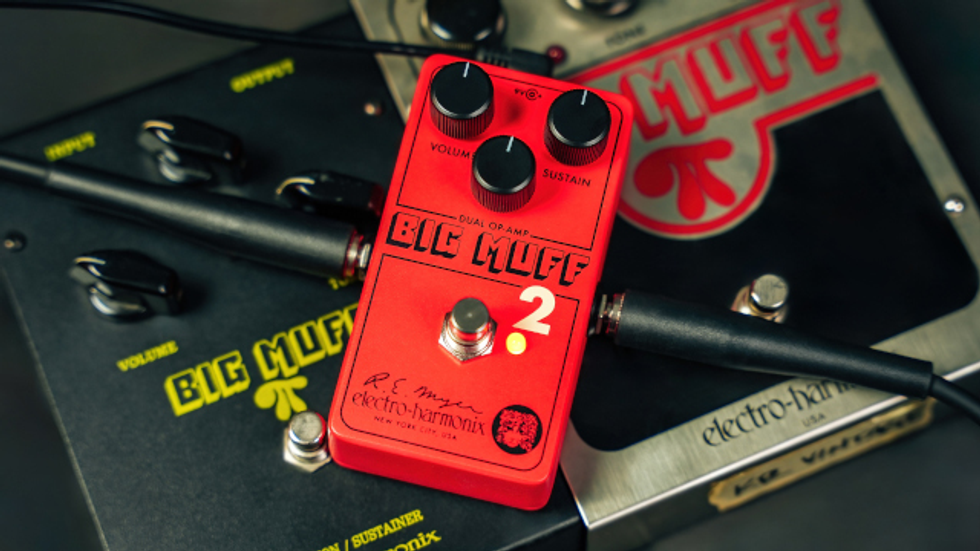This column is usually about tech details, not sprawling concepts. But I recently got sucked into one of those “playing for the song” debates on Facebook. Since creating musically appropriate parts is crucial for the recording guitarist, the subject seems fair game for a column.
The problem is, it can be a very boring conversation. In the course of that Facebook thread, I wrote this: “Guitarists who truly want to play for the song should practice saying these words: ‘I don’t think we need a solo here.’” That sentence got more response than anything I’ve ever posted to Facebook.
But while I meant those words, they didn’t advance the discussion in the slightest. Most of us already agree that heightening a song’s emotional impact is a loftier goal that displaying your monster chops. Really, the sentence is about as controversial as “Practicing makes you better” or “Gear alone won’t make you a great musician.”
I’ve interviewed countless guitarists over the years, and I’ve yet to hear one say, “The most important thing is my solo.” Almost everyone stresses the importance of emotionally appropriate playing. (And no one stresses it more than the players who suck at it.)
So let’s view the topic from a new perspective. Oh wait—make that an old perspective. We’re talking 1607, when Europe’s composers, musicians, and philosophers were engaged in an angry debate about music’s role when paired with words.
Breakin’ the law. The years around 1600 were a crisis point in European music history. When the new Protestant churches had rejected Roman Catholicism over the preceding decades, a frequent complaint was the egotistical flashiness and unholy sensuality of Roman church music. Protestant Numero Uno, Martin Luther, composed simple hymns that the congregation could sing in unison—not fancy stuff that required musical pros. In response, the councils of the Catholic Counter-Reformation mandated a simpler, more rule-bound style. (At this time, churches dominated all cultural life, and the most important compositions were written for them.)
Much great church music was written in this austere style. (Yo, Palestrina!) But increasingly, freethinking composers resented such limits. Music’s goal, argued the upstarts, was to move the emotions. If that meant stretching the rules, so be it. One of the leading rebels was Vincenzo Galilei, a composer and lute player whose son, astronomer Galileo Galilei, would go on to have his own dangerous run-ins with Catholic dogma.
The debate moved beyond religious music. Composers stretched boundaries using new, non-religious forms, often inspired by classical Greek and Rome ideas. The new battlegrounds were the madrigal (a free-form vocal composition with non-religious words) and a crazy-ass experiment that would eventually be known as opera.
Trigger warning: opera content. We’re not talking opera in the modern sense, with Valkyrie helmets, sad clowns, and 300-pound sopranos succumbing to improbable diseases. This was an avant-garde experiment performed for intellectual circles in noble courts.
The era’s leading composer was Claudio Monteverdi, whose L’Orfeo (1607) was the first great opera. In recounting the Greek myth of Orpheus and Eurydice, Monteverdi introduced radical new techniques, such as specifying the exact instruments that would accompany the voices. Before that, composers would write out parts, but the parts might be performed by any instruments that could handle them. Monteverdi used every available musical technique to heighten drama. Heads exploded.
But by then, one important head had already exploded. It belonged to composer/theorist Giovanni Artusi, who wrote a fiery criticism of Monteverdi’s “crude” techniques. Artusi already had a chip on his shoulder, because Galileo’s dad, Vincenzo, had criticized the conservative style of Artusi’s beloved teacher 20 years earlier.
Paging Mr. Plato. Monteverdi replied to Artusi in the introduction to his next book of madrigals, basically saying that he was too busy composing masterpieces to debate Artusi’s dumbass comments. But Claudio had a surrogate: his kid brother, Giulio Cesare Monteverdi, also a composer. Expanding on his brother’s words, Giulio said that Artusi was mired in the old style, while Claudio represented the modern style. In the new style, Giulio wrote, the “words are the mistress while the harmony is the servant”—not the other way around. The words determine the emotional intent, which melody and harmony should follow. It was the 1607 version of “You have to play for the song.”
And whom did Giulio whip out for intellectual backup? Plato, naturally. Giulio quoted the philosopher’s Republic: “The rhythm and harmony should follow the words.” And since the words represent the “disposition of the soul,” the rhythm and harmony should “follow and conform.” Those opinions date from around 380 B.C.! Giulio basically said: “Even Plato believes in playing for the song, so shut up.”
That didn’t end the debate, of course. The musical battle has raged for centuries. In one corner: the poets and composers trying to combine words and music for the truest and most powerful dramatic effect. In the other corner were shallow audiences who just wanted to see someone in a colorful costume sing a catchy tune, and egomaniacal opera stars whose primary concern was flaunting their wicked chops. Generation after generation of composers bitched about singers who would depart from the score to indulge in egomaniacal technical displays. Chances are no one said, “I wish that wanker would just focus on the frickin’ song,” but countless composers felt something like that.
Music vs. drama. Once of the most compelling takes on this ongoing conflict appears in the book Opera as Drama by musicologist Joseph Kerman. Like Orfeo, the book exploded heads when it appeared in the 1950s. Kerman evaluated centuries of opera, not just for the quality of its music, but in terms of whether it succeeded as drama. (He pissed all over some beloved operas, famously calling Puccini’s Tosca “a shabby little shocker.”) In Kerman’s view, only Verdi and Mozart achieved the perfect fusion of words and music.
It’s usually a terrible idea to apply the values of one musical style to a different musical style. Still, I often think of Opera as Drama when concocting a guitar performance in hopes of amplifying a song’s emotional power. Sifting through ideas, you think, “Does it add to the drama or detract from it?” That’s why, in retrospect, my anti-solo Facebook comment feels superficial. I’m not so much anti-solo as pro-drama. And occasionally, solos are good drama.
When an opera character suffers a fatal stiletto wound, but doesn’t die until they’ve pranced around the stage displaying their vocal prowess, it’s bad drama. I feel the same way when songs with meaningful lyrics get overwhelmed by dick-waving guitar performances. Some guitar solos seem as dramatically inept as if Hamlet had interrupted his own soliloquy (which was less than a decade old when Orfeo debuted).
To die, to sleep;
To sleep: perchance to dream: ay, there’s the rub.
But before we get into that rub, I’d like to bring out a clever little monkey.
Zounds! See him juggle five walnuts at once!
I’ll be back in a flash, good gentles. Don’t forget to tip thy wench!
That might be a pretty entertaining show! But it would probably suck as drama.




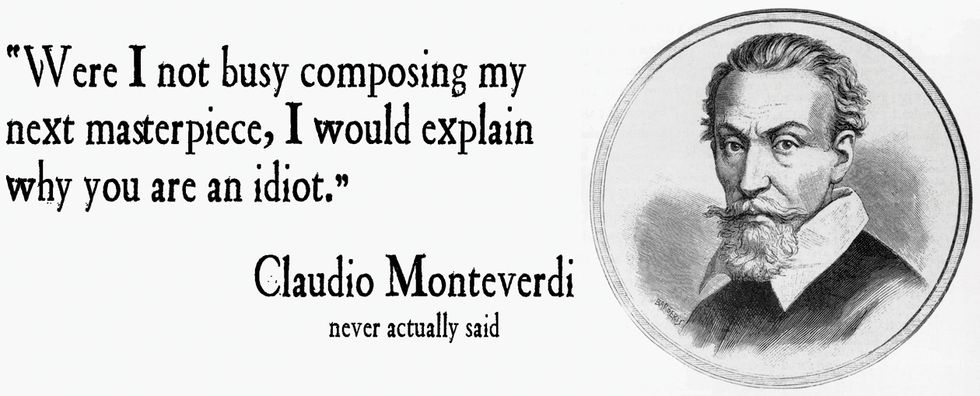
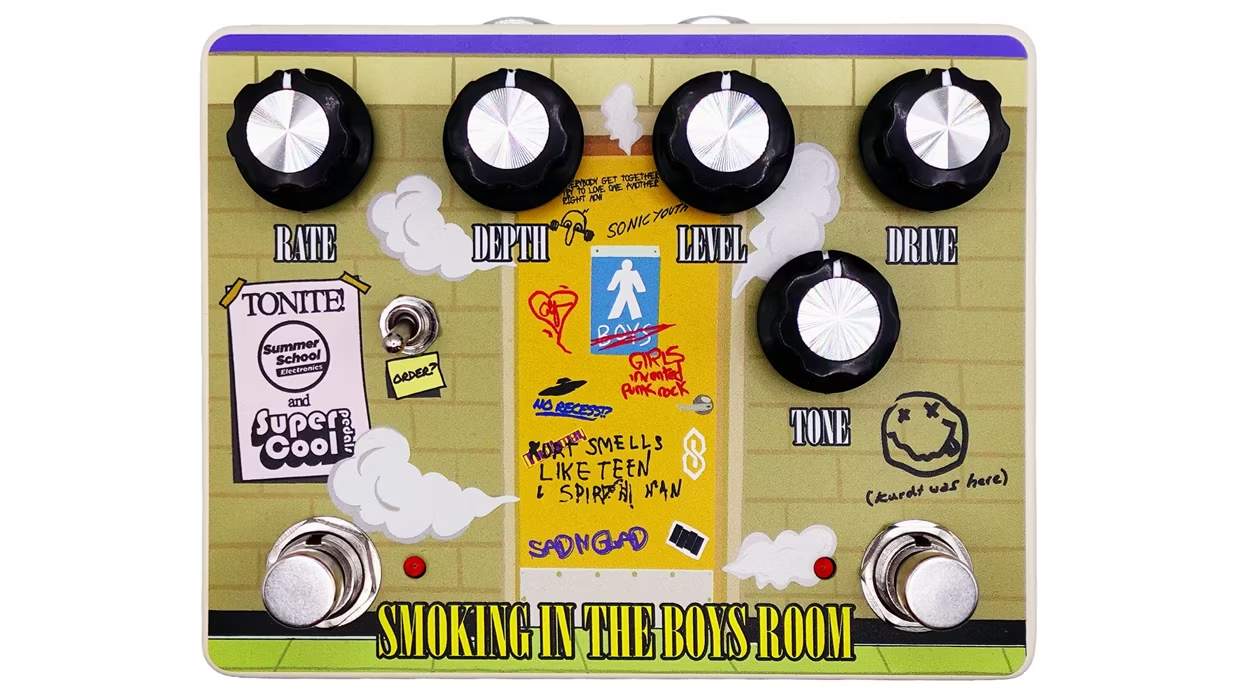

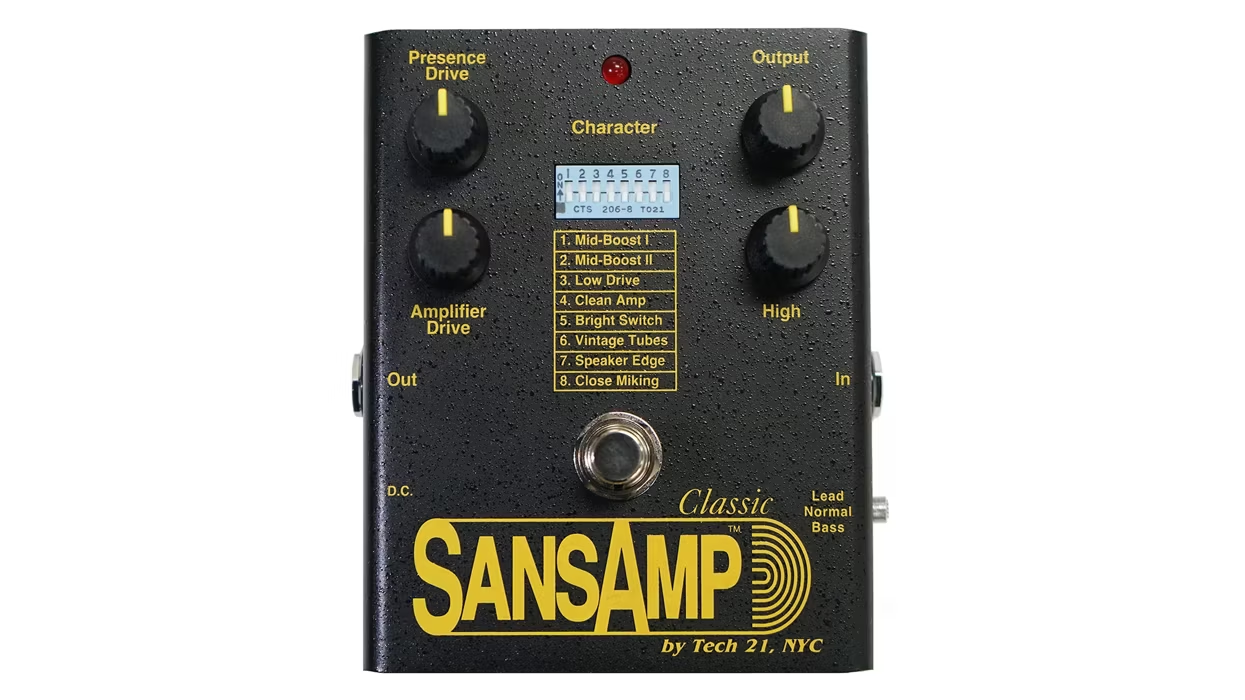
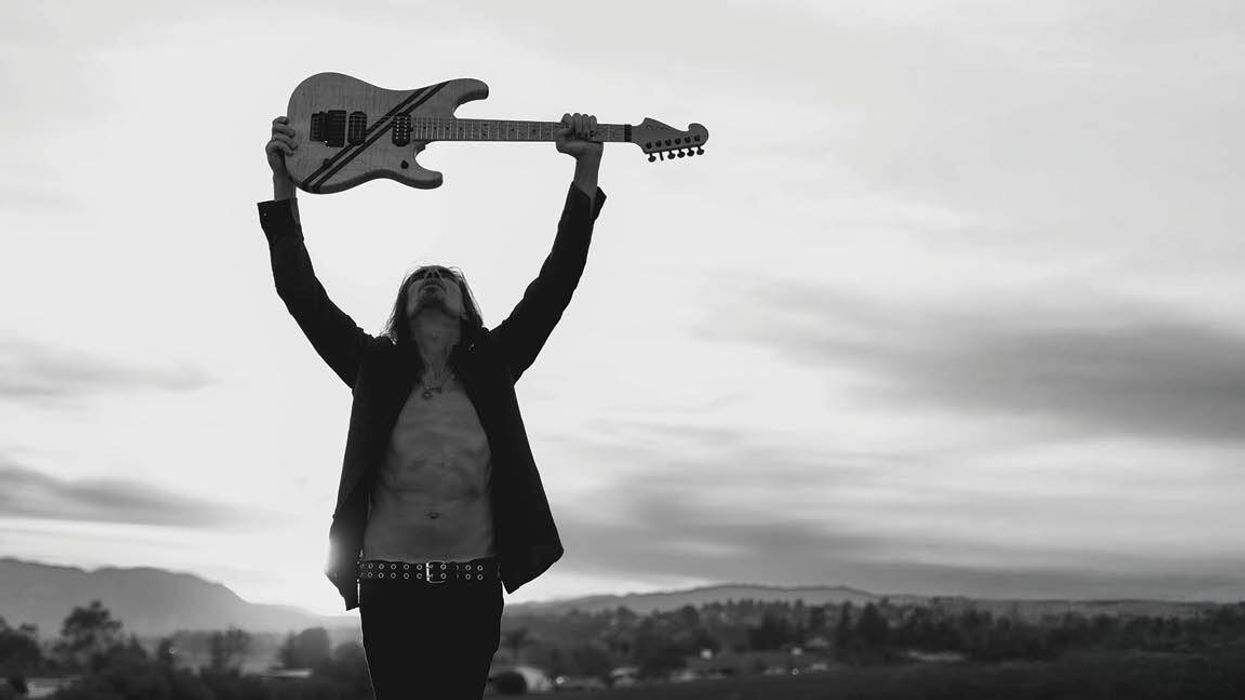
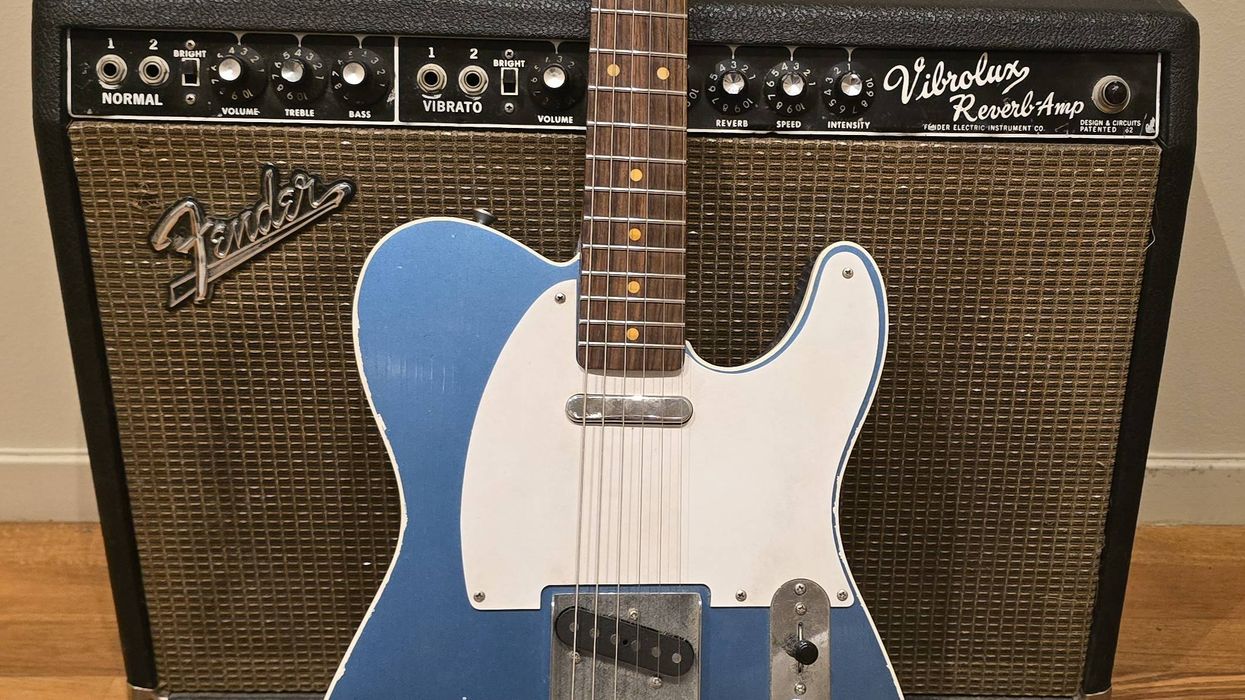
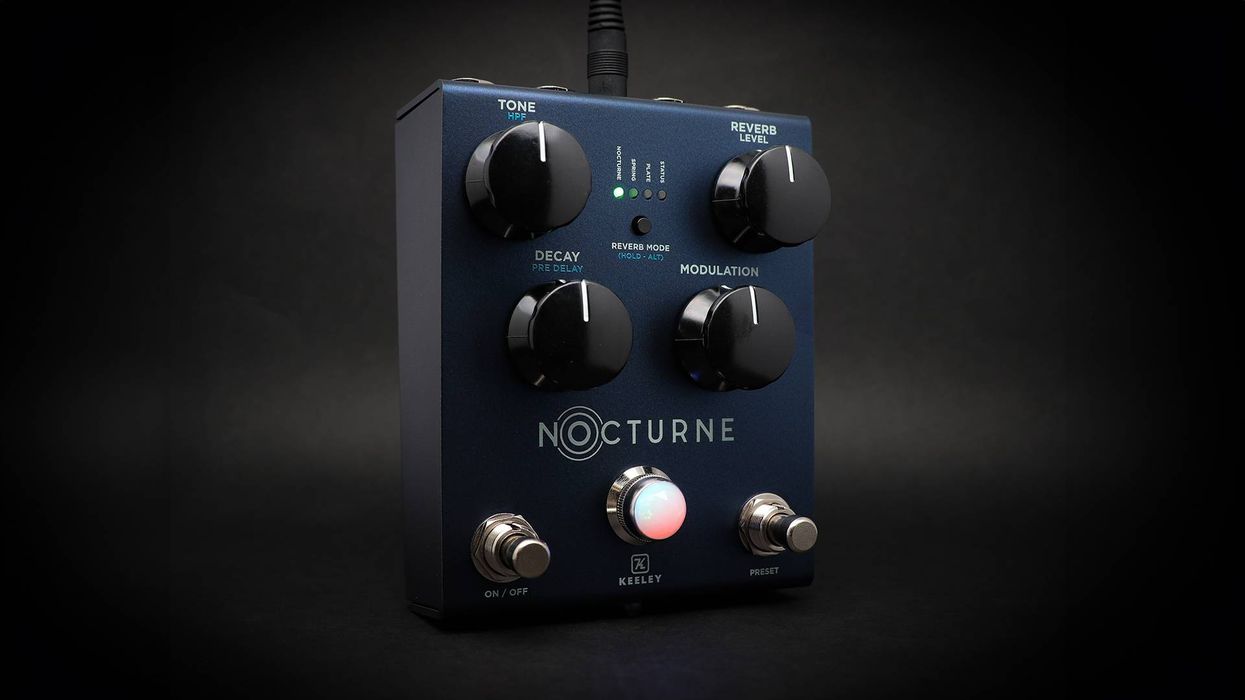
![Rig Rundown: Russian Circles’ Mike Sullivan [2025]](https://www.premierguitar.com/media-library/youtube.jpg?id=62303631&width=1245&height=700&quality=70&coordinates=0%2C0%2C0%2C0)

